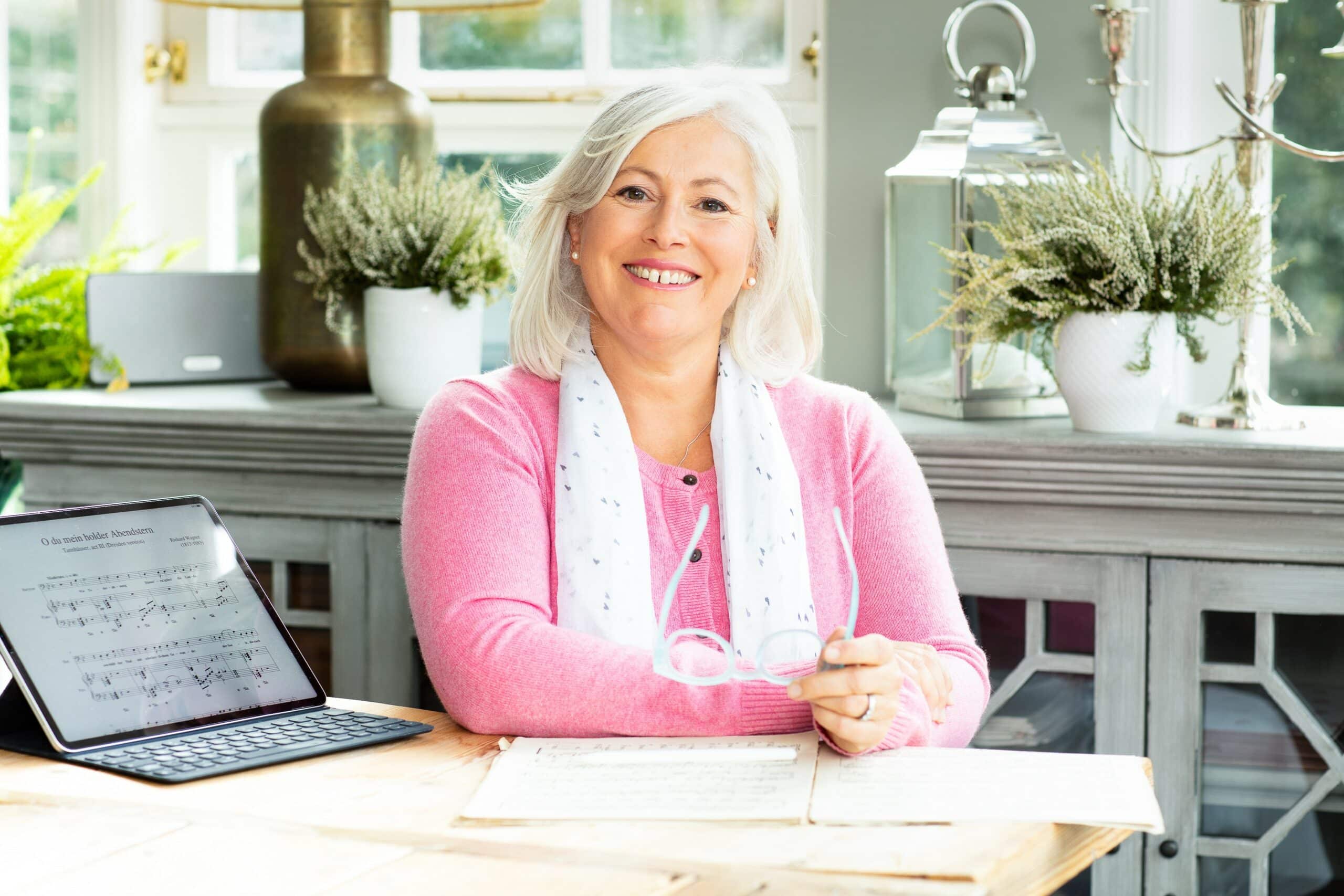In our second World WellBeing At Work Week article, sponsored by Deloitte LLP Jersey, singer and voice coach Nicki Kennedy explores the importance of having our voice heard at work, and the challenges we can face when trying to speak up.
In the words of Margaret Atwood, “A voice is a human gift; it should be cherished… Powerlessness and silence go together.”
Some people are naturally reserved, and some work environments are not sufficiently proactive to empower employees to express themselves.
Confident, outgoing individuals may inadvertently overlook their quieter colleagues, missing out on valuable insights.
In my personal journey, my voice has been a central focus as a vocation and as my primary goal. As an opera singer and performer, voice coach and teacher, my voice has always been front and centre of what I do. I have always had a platform for my voice to be heard, whether portraying characters, communicating music or teaching. However, taking a deep dive into the world of vocal rehabilitation for people whose voices are dysfunctional, through injury or trauma, has led me to contemplate the significance of having a voice, and the challenges of being heard.
During my visits to voice clinics in the UK, I am always struck by the people who present with no voice, unable to speak at all. People who have lost their power of speech, but who on further examination exhibit no sign of pathology. Their voice loss is psychogenic. Stress, bereavement, trauma, deep-rooted lack of confidence and other complex psychological situations are responsible for their loss of ability to communicate verbally. Our psychological make-up cannot be ignored when talking about voice and communication.
Being heard is more than just speaking or expressing thoughts and opinions. It is about feeling that what you say is valuable, meaningful and can make a difference. It is about the impact of all your communication, verbal and non-verbal. It’s about articulating ideas clearly and confidently, and ultimately, being able to persuade others. You must want to be heard.
Not having a strong voice can hinder growth and potential. Gender plays a part too. In the past, boys were encouraged to be confident, assertive, and self-assured, while girls were expected to be nurturing, agreeable, and accommodating. Where men have been seen in the past as more natural leaders and decision-makers, women have been expected to take on more supportive roles. Though much has changed, there are still many women who struggle to find their authentic voice in the workplace, feeling pressure to conform to these outdated gender norms.
So how can we find our voice? It is a collective responsibility to ensure that everyone’s voice is being heard. We must be attentive to the quieter members of a group and proactively seek their views; and the organisation itself is responsible for fostering a culture of listening. (If you listen to others, you can be sure your own voice will be heard in return). Most of all, individuals need to recognise their challenges in speaking up, and to actively determine strategies to help override this reticence.
A key element in finding one’s voice is self-confidence. This is not something that can be learned overnight, but rather a continuous process of self-awareness and growth. A sense of one’s worth.
Tackling impostor syndrome head-on and building self-confidence involves recognising one’s strengths and abilities, while understanding and accepting one’s weaknesses. It can be liberating to accept and acknowledge where you are not strong, but it’s then essential that you counter that by celebrating your successes and the unique qualities that set you apart.
Assertiveness is key too. It entails expressing oneself courageously without being aggressive or passive. It involves being able to communicate one’s needs and boundaries clearly, while respecting the perspectives of others. It may require a deep breath, but setting some goals around speaking up, and then taking the plunge, is a great first step. This can be tricky around very eloquent and fast-thinking speakers. Raise a hand, speak up, interrupt if you must, or even ask the chair of the meeting to carve out a moment for you, but challenge yourself to make your point. If you are usually quiet, I promise, people will be curious and will listen with heightened interest when you speak up.
Analysing the voices of politicians and public figures, it’s evident how the quality and strength of speech impacts on a leader’s fortunes. There is a perception that the voice you are born with is the voice you have, yet you can make changes to improve the quality, power, and impact of your voice so that people trust your message. There are many leaders who would benefit from investing time in this, as Margaret Thatcher famously did in days gone by. Proper breathing techniques and targeted voice coaching can make a difference to how you come across.
‘Powerless and silence go together’. This short quote is your call to action. You owe it to yourself to listen to others and to speak up when you have something to say.


